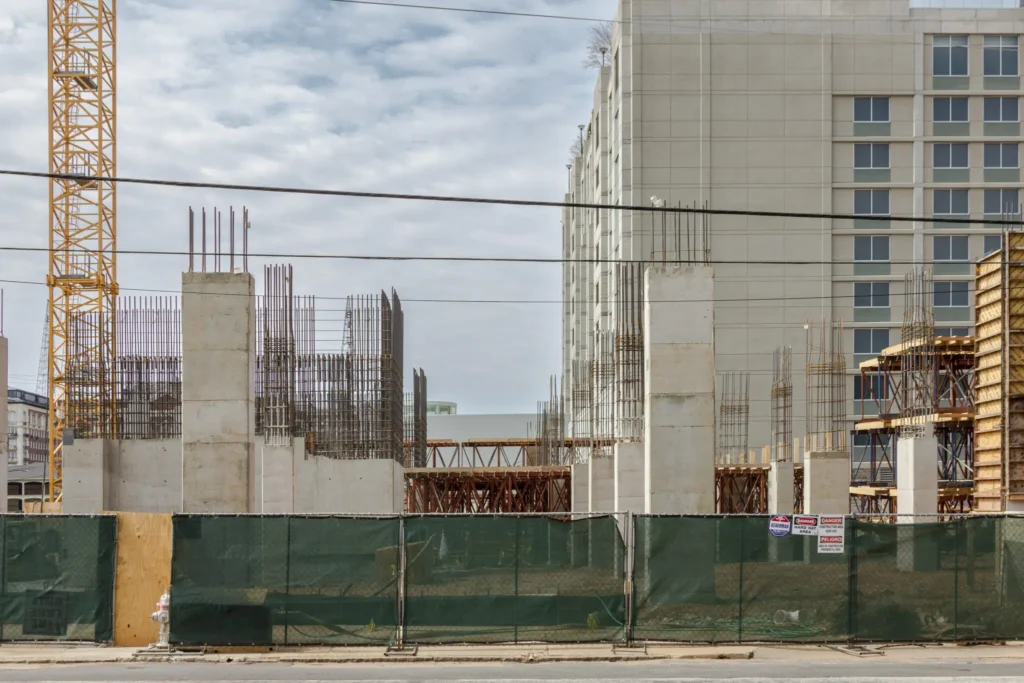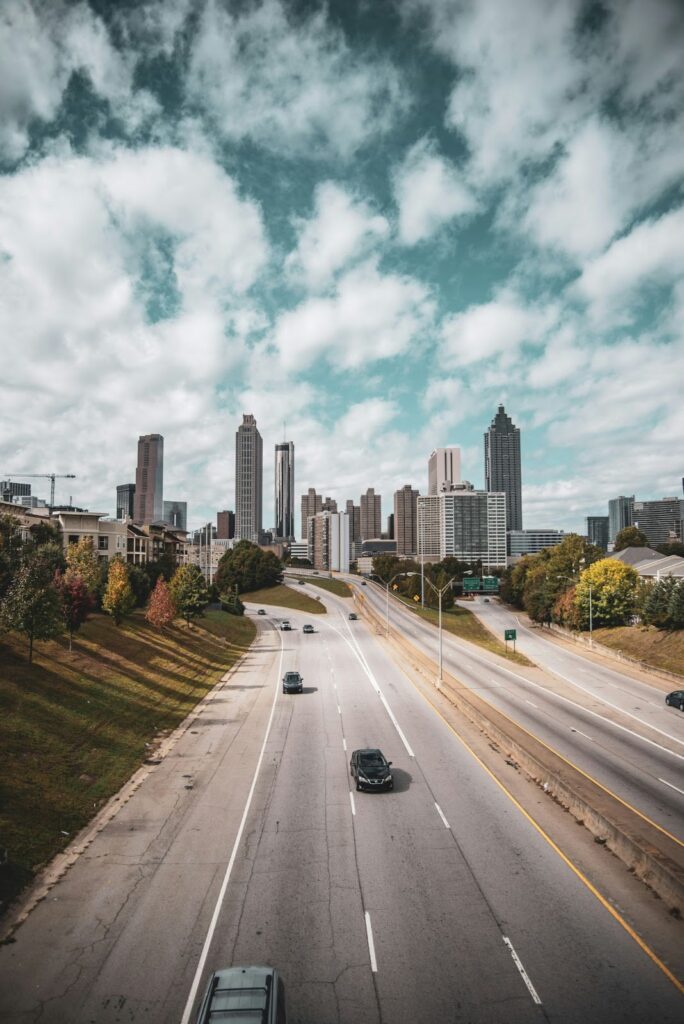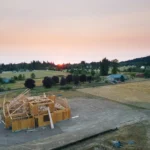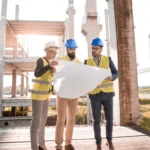The construction process in Atlanta, Georgia, involves several phases, each with its unique challenges and opportunities. The process generally includes pre-construction planning, permitting, site preparation, construction, and post-construction activities.
- Pre-Construction Planning: The initial stage of construction in Atlanta involves assessing a project’s feasibility. This includes creating budget estimates, analyzing the site, and conducting environmental impact studies.
- Permitting and Approvals: Ensuring compliance with Atlanta’s zoning regulations and land use plans is crucial. This involves understanding the designated zoning districts and their permitted uses, as well as any restrictions or requirements that may apply.
- Site Preparation: Site preparation in Atlanta involves several crucial activities to prepare the land for construction. The first phase, site clearing, and excavation, focuses on removing existing structures, debris, and vegetation. This process may include demolition, uprooting trees, and leveling the ground.
- Construction: The construction phase in Atlanta typically begins with foundation and structural work. This involves laying the foundation, which can be a concrete slab or a basement, depending on the building’s design and site conditions.
- Post-Construction: The post-construction phase in Atlanta involves several important activities to finalize the project and ensure a smooth transition for the building owner or tenants.
Did You Know?
The City of Atlanta has implemented the Commercial Building Energy Efficiency Ordinance, which aims to reduce energy consumption and promote sustainability in commercial buildings.
Challenges of Commercial Construction in Atlanta
Climate Considerations
Atlanta’s humid subtropical climate, characterized by hot, humid summers and mild winters, presents unique challenges for construction projects.
The high humidity levels can lead to moisture-related issues, such as mold and mildew growth, if not properly addressed during the design and construction phases. Additionally, the region is prone to heavy rainfall, which can cause erosion and soil instability on construction sites.
To mitigate these challenges, contractors select appropriate materials and implement moisture-resistant construction techniques that can withstand extreme weather conditions.
For example, using moisture-resistant building materials, incorporating proper ventilation systems, and designing drainage solutions can help prevent moisture-related problems.
Furthermore, scheduling construction activities to avoid periods of heavy rainfall can minimize disruptions and ensure project timelines are met.
Traffic and Logistics
Atlanta’s significant traffic congestion, particularly in the downtown area and during peak commuting hours, poses logistical challenges for construction projects.
Transporting materials, equipment, and workers to and from construction sites can be time-consuming and costly. Moreover, limited access and space constraints in urban areas can further complicate logistics planning.
To address these challenges, contractors can employ several strategies. Utilizing off-peak delivery hours can help avoid traffic congestion and ensure timely materials delivery.
Implementing just-in-time delivery systems can reduce the need for on-site storage, minimizing space constraints.
Additionally, coordinating with local authorities and obtaining necessary permits for lane closures or traffic detours can facilitate the movement of construction vehicles and equipment.
Historic Preservation
Atlanta boasts a rich architectural heritage, with numerous historic buildings and districts that contribute to the city’s unique character. While new development is essential for the city’s growth, it must be balanced with preserving these historic assets.
Construction projects in or near historic districts are subject to strict preservation guidelines and regulations, which can limit design options and increase project complexity.
To navigate these challenges, contractors must collaborate closely with preservation agencies and adhere to established guidelines. This may involve using specific materials, preserving original architectural features, and employing restoration techniques that maintain the building’s historical integrity.
By working within these constraints, contractors can contribute to revitalizing historic areas while ensuring their long-term preservation.
Opportunities of Commercial Construction in Atlanta
Sustainability Initiatives
The is increasingly focused on sustainability, offering incentives for green building practices and LEED certification. This focus aligns with global trends towards eco-conscious construction and presents a significant opportunity for Atlanta’s commercial contractors.
By incorporating sustainable design elements, energy-efficient systems, and environmentally friendly materials, contractors can meet the growing demand for green buildings and contribute to a more sustainable future for Atlanta.
Additionally, pursuing LEED certification can enhance a building’s marketability and long-term value, attracting tenants and investors who prioritize sustainability.
Economic Growth
The city’s strong economic growth and influx of businesses provide ample opportunities for new construction and development projects.
Atlanta’s diverse economy, fueled by thriving sectors such as technology, logistics, finance, and media, has led to a steady influx of businesses and residents.
This population growth, coupled with the expansion of existing companies, creates a continuous demand for new commercial spaces, including offices, retail centers, hotels, and industrial facilities. This presents a favorable environment for Atlanta’s commercial contractors to secure projects and contribute to the city’s economic development.
Engaging with local communities and stakeholders can lead to projects that are well-received and supported, enhancing the social impact of development.
Involving the community in the planning and design process can help ensure that new developments align with the needs and desires of the people who will be most affected by them.
This can lead to increased public support, smoother permitting processes, and a greater sense of ownership and pride in the completed project.
By fostering positive relationships with local communities, commercial contractors can build trust, enhance their reputation, and contribute to the overall well-being of the city.
Pro tip
Atlanta is divided into various zoning districts, each with specific regulations regarding the type of structures that can be built, their uses, height, density, and setback requirements. If your project doesn’t conform to existing zoning requirements, you may need to apply for a variance or special use permit. This involves public hearings and can be a lengthy process, so plan accordingly.












